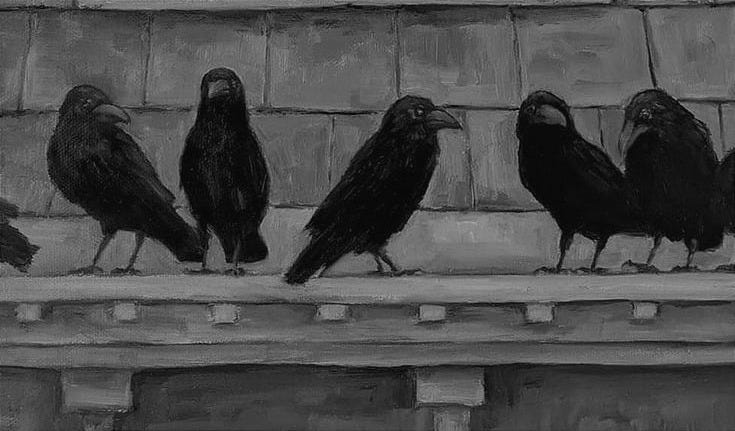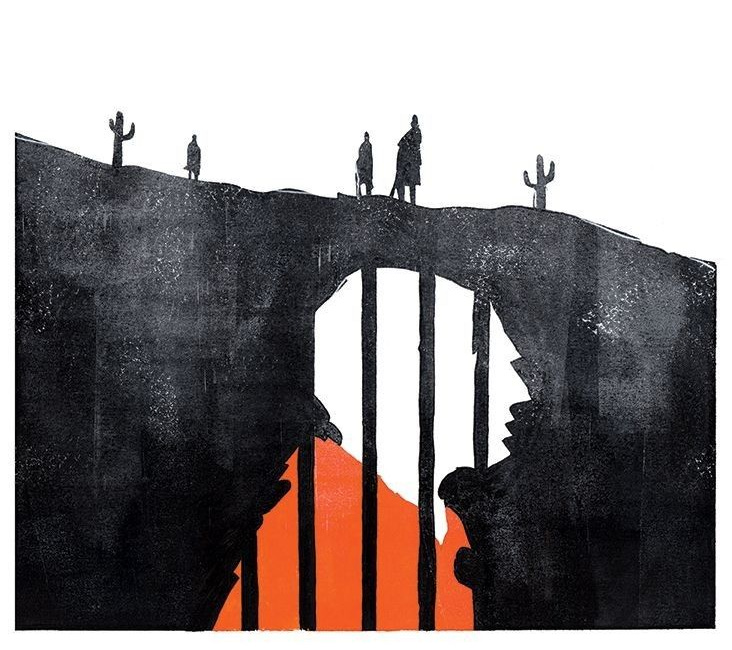Pakistan exists in a moment suspended between the ghosts of squandered promise and the flickering light of a future not yet extinguished. The air still hums with the metallic echo of downed jets and the roar of triumphalist generals, a fleeting spectacle that cannot mask the rot beneath the parade grounds. Here, in the shadow of Himalayan glaciers and the dust of Baloch plains, a civilization grapples with its own unraveling: a military intoxicated by borrowed power, an economy bleeding through the fingers of kleptocrats, and a generation of youth gazing toward horizons their own classrooms have never named. This is not merely a nation in crisis; it is an epic theater where tragedy and hope perform their eternal dance.
The illusion of strength projected by May’s aerial duels with India crumbles under scrutiny like sunbaked clay. Those J-10C fighters that pierced the sky were not symbols of indigenous prowess but exoskeletons bolted onto a frail body politic... 82% of Pakistan’s arsenal breathes on Chinese life support. Victory chants ring hollow when they echo in streets where 44% of citizens ration wheat while generals anoint themselves with five-star epaulets. The very missiles that deterred Indian incursions now chain Pakistan to a future as a geopolitical testing ground, a stage where America and China rehearse their cold wars with Pakistani lives as props. This borrowed might emboldens only the delusional; it builds no schools, feeds no children, and silences no cries for justice from prison cells where democracy’s champions fade.
Economically, the nation hemorrhages. A trade deficit yawns like an open wound: $21.4 billion in ten months alone, as imports devour foreign reserves faster than locusts in a wheat field. The IMF’s dollars, meant to staunch the bleeding, vanish into the labyrinth of “hairbrained schemes,” overseen by a kleptocracy and the Lady Chatterley of Punjab so brazen that 86% of citizens taste its bitterness daily. Corruption is not an anomaly here; it is the operating system, a virus thriving in the low oxygen of accountability, where convictions wither in 68.3% of shadows. While military factories export JF-17 jets, farmers watch canals crack under a sun that bleaches both land and hope. Water stress tightens its grip, yet billions flow toward missile silos while villages drink cholera. This is not mismanagement; it is a calculated feast upon the carcass of a state.
In classrooms frozen in the amber of the 1970s and 80s, Pakistan’s future suffocates. Twenty-two million children haunt alleyways instead of desks, a phantom army of the untaught, the largest such battalion on earth after Nigeria. Girls, half the sky, see their horizons clipped at 52.8% literacy, while STEM enrollment languishes at a skeletal 7%. The great AI revolution sweeps the globe, yet Pakistan graduates fewer than a thousand AI researchers annually as India sends forth fifteen thousand. When three of every four IT graduates flee abroad, it is not ambition that drives them; it is the stench of decay in laboratories without equipment, in universities without books, in a nation that spends a paltry 0.2% of its wealth on the seeds of tomorrow: research. This is not neglect; it is civilizational suicide.
Governance has become a grotesque pantomime. Military courts rage against civilians for “desecrating” a general’s house while ignoring the grand sacrilege of national plunder. By-elections like Sambrial’s unfold as raw farces; police batons silencing dissent, ballot boxes stuffed with fear. The imprisonment of Imran Khan and his wife is no judicial act; it is the twitch of an authoritarian reflex, terrified of the democratic heartbeat it cannot still. When 55% of businesses name crime as their chief tormentor and 48% of citizens feel life itself slipping backward, it is not chaos they describe, it is the logical harvest of a state that serves barracks... not bazaars; generals, not girls seeking pencils.
And yet, against this tapestry of despair, there pulses a counter-rhythm. Pakistan’s true superpower lies not in its missiles but in its people: 309 million souls by 2050, a tidal wave of youth hungry for light. Projections place it as the world’s 16th-largest economy by mid-century, vaulting past Italy and Canada. Beneath the grief, resilience flowers: in global happiness rankings, Pakistan outshines India, buoyed by an innate generosity, a culture of “social support” that turns strangers into kin. TikTok entrepreneurs in Mirpurkhas, girls coding in Karachi apartments and alleys of Bannu, farmers experimenting with drought-resistant seeds... these are the quiet insurgents of hope. They embody the “Wellbeing Economy” that scholars dream of, one measuring prosperity not in GDP but in shared dignity, where wealth circulates like blood, not stagnates in elite veins.
But destiny is not divination. Climate change looms like a second partition… the 2022 superfloods, which drowned $30 billion and displaced millions, were but a prologue. Meanwhile, Modi’s India sharpens knives over shared rivers and Kashmir’s glaciers, turning water into a weapon. Pakistan cannot emulate Vietnam or Bangladesh’s single-minded growth; it must walk a razor’s edge, building dams and democracies simultaneously, securing both borders and bread.
The path from ruin requires not reform but revolution…
Sever the Generals’ Grip, end the military’s stranglehold on politics and purse. Redirect defense billions toward climate-resilient farms and AI labs. Let courts try corrupt officers, not poets.
Ignite an Education Renaissance, Tear up 1980s curricula. Flood schools with coding kits, agritech workshops, and female teachers. Partner with China not for missiles but for cloud computing academies and 5G libraries.
Measure Wellbeing, Not Wealth. Adopt Iceland’s model. Prioritize hunger rates, water access, and mental health over stock indices. Let a farmer’s yield matter more than a general’s medal.
Offer India an Olive Branch, Not a Fist. Propose mutual de-escalation and halt cross-border raids in exchange for guaranteed Indus waters, no games in Balochistan & KP. Let trade trucks, not tanks, cross at Wagah.
Pakistan’s dawn remains fractured but not extinguished. The generals’ borrowed jets may rule the skies today, but tomorrow belongs to the girls debugging algorithms in Gilgit and Chitral, the mother teaching literacy in a Sindhi flood camp, the Baloch entrepreneur turning desert into solar fields. They need no five-star epaulets... their insignia is resilience itself.
As the poet Faiz whispered:
یہ داغ داغ اجالا، یہ شب گریدہ سحر وہ انتظار تھا جس کا، یہ وہ سحر تو نہیں یہ وہ سحر تو نہیں، جس کہ آرزو لے کر چلے تھے کہ یار کہ مل جائے گی کہیں نہ کہیں فلک کے دشت میں تاروں کی آخری منزل
The stains run deep, the night feels endless, but beyond the horizon, a sun waits. It will rise not on citadels of brass, but on the courage to rebuild them anew.
Tail Piece: Pakistan’s dawn will be written by souls who dream in poetry while planting seeds of change.
اور بھی دکھ ہیں زمانے میں محبت کے سوا راحتیں اور بھی ہیں وصل کی راحت کے سوا
…Concluded.
Dear Readers, A sequel to above article can be read here:
The Paralysis and the Spark: Pakistan’s Contested Tomorrow
The lament has been sung; the diagnosis etches the air itself. Pakistan fossilizes in suffocating stillness, crushed beneath its contradictions. Borrowed jets: grounded metaphors.








Salaams ! Every word you wrote It comes from an aching heart doesn’t it?
In the pages of history and in the Quran it says “ Oppressors will be ruled by Oppressors”
Otherwise if it is a nation of non Oppressors they historically have always rebelled and changed nations with their revolution.
While poetry is good, but unfortunately it is the enunciation of a castrated nation. Most of the subcontinent pours its woes into poetry instead of into action with the exception of Allama Iqbal who roused a whole nation to action.
I think we have a lot to learn from The Turks!